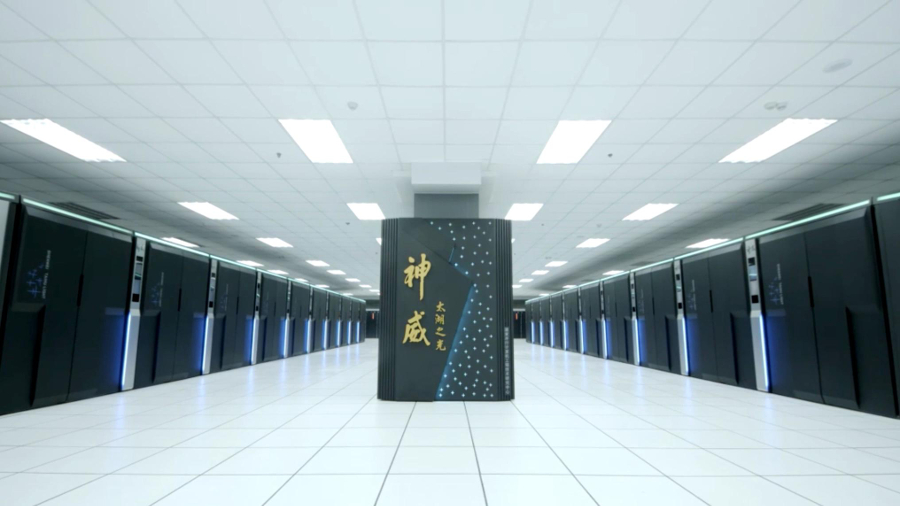This 10-million core machine makes other supercomputers look slow
Sunway TaihuLight eclipses previous supercomputing champ Tianhe-2

There's a new fastest supercomputer in the world, and unsurprisingly it's a machine from China – although what is surprising is just how much faster the new top system is.
According to the freshly issued Top500 list which ranks the speediest supercomputers, the new Sunway TaihuLight has completely blown away the old number one system, which was Tianhe-2 – a name you may well be familiar with because it's been top for some time.
Sunway TaihuLight boasts 10,649,600 computing cores comprising 40,960 nodes, and racked up a Linpack performance benchmark of a staggering 93 petaflop/s (93 quadrillion calculations per second), dwarfing Tianhe-2's score of 33.86 petaflop/s. The processing power of this machine alone represents a 16.4% share of the total performance achieved by all 500 computers in the list.
As well as being blazingly fast, Sunway TaihuLight is also highly efficient, with peak power consumption under load being measured at 15.37MW, securing the machine one of the highest spots on the Green500 that ranks performance relative to power usage.
And the big thing for China is that this new supercomputer goliath was built using processors made in its home country, as opposed to Tianhe-2 which used Intel hardware.
Sunway TaihuLight was developed by the National Research Center of Parallel Computer Engineering & Technology and is installed at China's National Supercomputing Center in Wuxi.
Previous to this current list, Tianhe-2 was top dog for the last six lists running (in other words, the last three years, as the rankings are issued twice yearly).
Sign up for breaking news, reviews, opinion, top tech deals, and more.
Titan is third
So what's the number three supercomputer? That would be a US machine called Titan, a Cray XK7 system which resides at the Department of Energy's Oak Ridge National Laboratory, and carved out a score of 17.59 petaflop/s.
The most powerful system in Europe is the Piz Daint, a Cray XC30 system used at the Swiss National Supercomputing Centre, which is ranked number eight.
China isn't just making strides in terms of the fastest supercomputers, but also overall numbers. Indeed, for the first time since the Top500 rankings were published, China now has more systems in the list than the US, with 167 supercomputers compared to 165 in the States.
So as you can see, the vast majority of these behemoth computers – two-thirds of them – reside in these two countries.
The leading country in Europe is Germany with 26 supercomputers, followed by France which has 18, and then the UK on 12.
The world of supercomputers aside, yesterday we saw a 1000-core processor built by the University of California, Davis, which in itself is remarkable because it's claimed to be the most energy-efficient 'many-core' processor ever seen.
Image Credit: Top500.org
- Also check out: Nvidia's latest supercomputer is like 'a datacenter in a box'
Darren is a freelancer writing news and features for TechRadar (and occasionally T3) across a broad range of computing topics including CPUs, GPUs, various other hardware, VPNs, antivirus and more. He has written about tech for the best part of three decades, and writes books in his spare time (his debut novel - 'I Know What You Did Last Supper' - was published by Hachette UK in 2013).